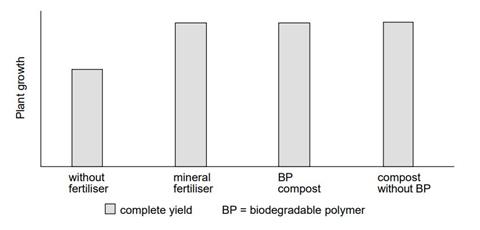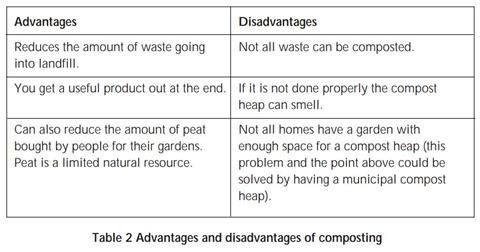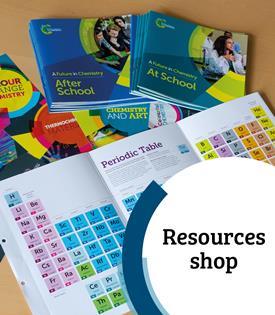There’s nothing rubbish about waste management
This activity would follow on well from Disposable cups and the environment or making polylactic acid. If students have already done one or both of these other activities, they will have been introduced to the idea that landfill is a problem.
They should also already be aware that waste does not rot in a landfill site so as long as we dump everything in a hole in the ground it does not matter much what the waste is made of, the effect remains the same.
Managing waste and rubbish
This activity introduces composting as a way of managing rubbish by turning it into a useful product – not just garden waste but the majority of biodegradable waste.
The activity focuses on two projects, one in Dorset in the UK and the other in the German town of Kassel.
Questions
- Where does most rubbish in Britain end up? What happens to it there?
- Make a table of the advantages and disadvantages of disposing of waste in landfill sites.
- Make a table of the advantages and disadvantages of disposing of waste in a compost heap
The Kassel project
Some scientists from the Department of Waste Management at Weimar University in Germany did some experiments to see if consumers would be able to separate compostable plastics from ordinary plastics.
They decided to do their experiment in the town of Kassel. People in Kassel already had separate bins for recycling and for compostable waste. The scientists got shops in Kassel to use carrier bags and packaging made of biodegradable plastics. These items were labelled with a clear logo. An advertising campaign was run to ask people to put these plastics into a separate bin for compostable waste.
The scientists analysed waste bins from different areas and looked to see:
- If people put ordinary plastic into the bin for compostable waste
- If people put the biodegradable plastic into the general recycling or waste bin.
Questions

- Look at the chart. Can you use the compost to help plants grow?
- Why is it more of a problem if you have ordinary plastics mixed in with biodegradable waste than if biodegradable plastics get mixed in with ordinary waste?
- Why did the scientists conduct their experiment in the way they did? Are their results helpful?
Answers
- Most rubbish in Britain ends up in landfill sites. There not much happens to it and it can remain unchanged for decades.
- Answers could include the points listed in Table 1. There are other possible answers too – this list is not exhaustive.

- 3. Answers could include the points in Table 2.

- This question asks for students’ opinions so answers will vary. Few people compost their waste because:
- It takes effort and it is easier to throw things in the bin and forget about them.
- People do not know about the advantages of composting or the disadvantages of landfill.
- There are no (or limited) municipal composting facilities for domestic rubbish in the UK.
- People still do not know which wastes are biodegradable.
- Yes, you can use the compost to help plants grow.
- The ordinary plastics in the compostable waste would not break down and would contaminate the final compost. The biodegradable plastics would mix in with the ordinary plastics being recycled without causing major problems. The task of matching the statements about the experiment is intended to make students think about how an experiment is carried out. They may initially think the Kassel project is not really like a science experiment because it is about people’s behaviour and attitudes. This exercise should help them to realise that it is not so very different from an experiment conducted in the laboratory.
You may wish to discuss the questions in the To think about section with students before they write their report. The report could be set for homework or used as another follow-up activity. Students should focus on possible ways for the county council to reduce landfill but wherever possible should also highlight the difficulties that could arise.
Downloads
Managing waste and rubbish
PDF, Size 0.66 mb
Additional information
This resource is a part of our Inspirational chemistry collection.
Inspirational chemistry book
- 1
- 2
- 3
- 4
- 5
- 6
- 7
- 8
- 9
- 10
- 11
- 12
- 13
- 14
- 15
- 16
- 17
- 18
- 19
- 20
- 21
- 22
- 23
- 24
- 25
- 26
- 27
- 28
- 29
- 30
- 31
- 32
- 33
- 34
- 35
- 36
- 37
- 38
- 39
- 40
- 41
- 42
- 43
 Currently reading
Currently readingManaging waste and rubbish
- 44
- 45
- 46
- 47
- 48
- 49
- 50
- 51
- 52





































































No comments yet